Does Glucosamine Help Arthritis? (4 Real Benefits)
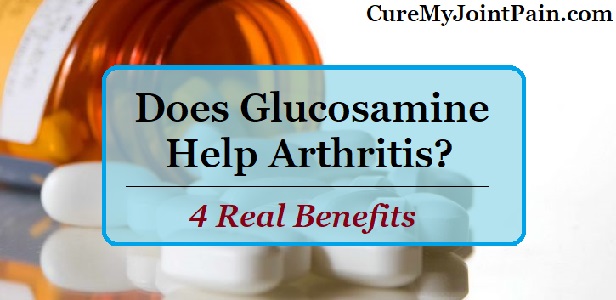
Do you have any kind of joint pain? If you do, you surely heard about glucosamine supplements. They’re one of the top choices for this problem.
But does glucosamine help arthritis for real? Or it’s just all this hype around it? There’s no substance that is so popular as glucosamine, so it could be overestimated.
Well, I tried to look at several aspects of this substance and see if it’s really effective for arthritis or not.
Yes, It Really Helps Arthritis
At this chapter, I can really speak from experience.
Glucosamine supplements do improve arthritis. But does it work for any form? Not really. If you want to get the most of their benefits, you should meet these 3 conditions:
- you have osteoarthritis or cartilage problems
- the supplement you’re using is based on glucosamine sulfate (not other form)
- you use the supplement for at least a few months
I will explain more about each of them later on. The point is that glucosamine supplements are one of my top recommendations for osteoarthritis. If you have another form of arthritis, they could help, but not tremendously.
If you choose the right product, the benefits can be amazing.
So based on my experience with glucosamine, let me tell you shortly its top 4 benefits and how it can help you:
Benefit #1 – Rebuilds Cartilages
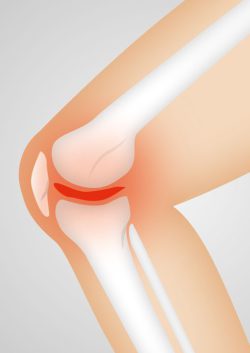
That’s the main reason why I recommend glucosamine for osteoarthritis. In OA, cartilages are more or less damaged – that’s basically what causes the condition.
For this reason, glucosamine could help a lot – as long as you’re choosing the right supplement.
But how exactly can it do that? Let’s take a look at the basics of this substance.
Glucosamine sulfate is a regular compound of cartilages and synovial fluid. Once its production decreases, cartilage problems will come up. Also, your joints could start getting less lubrication. This means they would get dry and easier to damage.
And that’s where glucosamine supplements can help.
As your body receives more glucosamine, your cartilages will be able to use that extra quantity. So they will start to get stronger and better lubricated, just like before.
Obviously, nothing will happen overnight. That’s why you need to be patient and take the supplements for at least one month.
Benefit#2 – Antioxidant
To be honest, that’s something I personally had no idea about.
Just like it can rebuild cartilages, glucosamine also has antioxidant proprieties. What exactly does that mean? Here are the things:
- fights against oxidative stress
- reduces the number of free radical molecules
- protects the joints from external damage
- has anti-aging proprieties
Free radicals and oxidative stress are dangerous as you grow older, because that’s when they start to hit. In fact, osteoarthritis could even be caused by oxidative stress. It’s not something I can guarantee for, but it’s a theory that makes sense.
A lot of older people suffer from OA, so I don’t think it’s just a coincidence.
Therefore, glucosamine can also protect your joints from oxidative stress and aging. But if you don’t have OA already, I don’t recommend taking glucosamine pills. Or at least not for the sake of antioxidants. There are a lot of natural foods with these proprieties – take celery, cherries or even honey.
Benefit #3 – Increases Lubrication
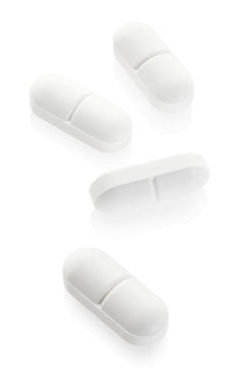 I’ve already mentioned this aspect briefly, but I will explain it here:
I’ve already mentioned this aspect briefly, but I will explain it here:
So glucosamine is a natural compound from out body. It exists both in cartilages and in synovial fluid (the liquid around the joints). This fluid is what keeps the joints and cartilages nourished.
Well, as glucosamine is a big part of it, guess what happens when the production of glucosamine decreases? It’s easy – the production of synovial fluid also decreases. This means that your joints will suffer, in terms of nourishment.
So that’s where glucosamine supplements come up. The right product will improve your joint’s lubrication pretty fast. How exactly could you tell?
It’s very easy – when your joints feel inflexible and stiff (I’m not talking about morning or sitting stiffness), they are probably very poorly lubricated.
So if a supplement makes your joints more mobile, it actually improves their lubrication. Does it make sense to you?
Unfortunately, most glucosamine pills I tried didn’t help with this. But when I chose the right product, I could feel a big change.
Benefit #4 – Protects Joint Tissue
When it comes to this, it’s pretty simple:
Glucosamine (along with chondroitin) can protect the joints from damaging factors. That’s usually a long term benefit, so I wouldn’t recommend taking glucosamine pills just for future protection.
But if you already have OA or damage cartilages, here’s what it could protect your joints from:
- free radical molecules
- mechanic tear
- oxidative stress
One thing I want to point out: as you grow older, your bones and cartilages are more likely to get fractures. Well, glucosamine can decrease that risk. I don’t think it can do much for the bones, but it can definitely strengthen the joints and cartilages.
So it doesn’t only protect against oxidative stress and mechanic shock. It also keeps the cartilage healthy and strong.
Glucosamine – Sulfate Or HCl?

There’s a lot of fuss around these 2 forms: Which works better? Which is stronger?
I will give you my honest opinion based on 2 things:
- the studies I read about both
- my experience with supplements that contained each form
So here’s the thing. Glucosamine sulfate is a lot more effective for osteoarthritis, knee pain and cartilage problems. It has many studies behind and most of them have positive results. On the other hand, the substance itself is a bit more expensive (though the supplements aren’t).
On the other hand, there’s glucosamine HCl. This form doesn’t have any studies behind – or I should rather say, it doesn’t have any positive results (as it was studied too). However, it’s much cheaper than the sulfate form.
Now here comes the interesting part. Despite being cheaper, glucosamine HCl costs just the same as the sulfate in supplements. I mean, there’s no difference in price between products with the sulfate and the ones with the HCl.
Now let me tell you my experience with both, in general:
- the sulfate – products with this form usually increase my joint flexibility and lubrication. I can tell that by the way I move, so they do help in rebuilding cartilages.
- the HCl – supplements with this form don’t help me a lot usually. They do decrease my pain (if they have additional ingredients), but they rarely make me move easier.
So my final conclusion is that glucosamine sulfate is way better than the HCl. That’s why I advise you to buy only products with the sulfate form – if you want the best results.
How To Choose The Right Supplement
So it’s pretty clear now – glucosamine is one of the best choice for osteoarthritis. But at this point, there are hundreds (if not thousands) of products on the market.
How do you know which is the best one? Is there any criteria you can follow?
Well, based on the experience I have had with glucosamine, let me give you the criteria I follow. If you want the best results, I advice you to get a supplement that follows all these points:
- glucosamine sulfate – no matter what, make sure your supplement uses this form of glucosamine (not the HCl) – it’s essential
- anti-inflammatory herbs – if you want to get the best results, you also need some stuff that can fight the minor inflammation
- chondroitin – glucosamine works best when combined with this substance (you need lower dose than glucosamine)
- antioxidants – glucosamine isn’t a very strong antioxidant, so a substance like bromelain could help a lot additionally
That’s basically what a good OA supplement should have, besides glucosamine. But there’s one important thing I didn’t mention – the price.
Don’t pay a fortune for any supplement, no matter how amazing it seems. You can always find something similar for a lower price, you only know where to look. If you need any advice, just leave a comment and I will give you some recommendations according to your budget.
My Verdict – Does Glucosamine Help Arthritis?
Short answer: Definitely, as long as you have OA and you use a supplement with the sulfate form.
If your problem has an inflammatory cause (like rheumatoid arthritis), glucosamine won’t help a lot. I read that it also has (minor) anti-inflammatory proprieties, but it never helped me with inflammation. Turmeric supplements can solve this problem completely.
So I wouldn’t recommend glucosamine for that (unless it’s associated with some anti-inflammatory).
On the other hand, I prefer products with glucosamine sulfate, not HCl. The HCl form doesn’t have any positive studies behind, while the sulfate has many. Besides, I personally never reacted amazingly to HCl products, so they’re not something I recommend.
So glucosamine is my #1 advice if you have osteoarthritis, because I’ve seen it work myself. If you choose the right products, you have to see some benefits on the long term, believe me.


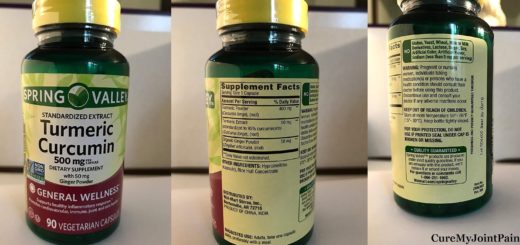
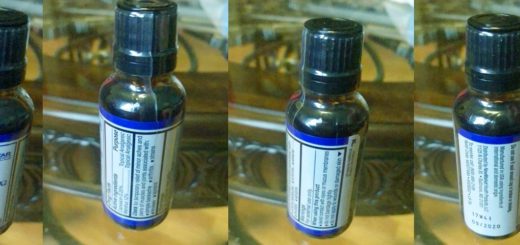
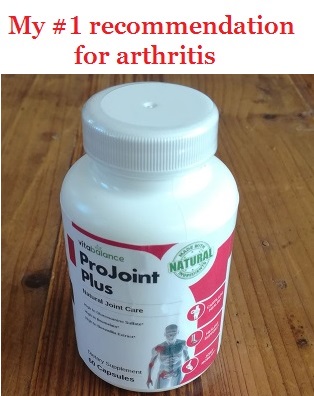
Any liquid gluscomine sulfate you recommend?
Hi there. I’m not a big fan of liquid glucosamine because in most cases, it doesn’t have the same effect as pills. My experience with Vital 3 is the best proof. That’s why I don’t usually recommend liquid products too much. I actually don’t have any brand I prefer but there are a few things you should consider in terms of formula:
1) Choose a product that contains the SULFATE form of glucosamine. It’s usually stronger than the other form (the HCl) and it has way more evidence behind.
2) Make sure your choice has at least 1000 mg of glucosamine. Anything between 1000-2000 mg would be great.
3) Go for a product that also contains chondroitin sulfate, because glucosamine works much better when combined with it. Chondroitin doesn’t require a high dose at all (even 100 mg would do).
4) Also, if possible, choose a product that contains additional ingredients like MSM, anti-inflammatory herbs (Turmeric, Boswellia, etc).
You can look for a product that follows this criteria. I found a product from Tropical Oasis called Joint Complete Premium and it pretty much meets the criteria I mentioned. It’s not very cheap, but liquid glucosamine tends to be way more expensive than pills. But anyway, that product isn’t the only one available, just take a look and you should also see some other ones.
I hope this helps!